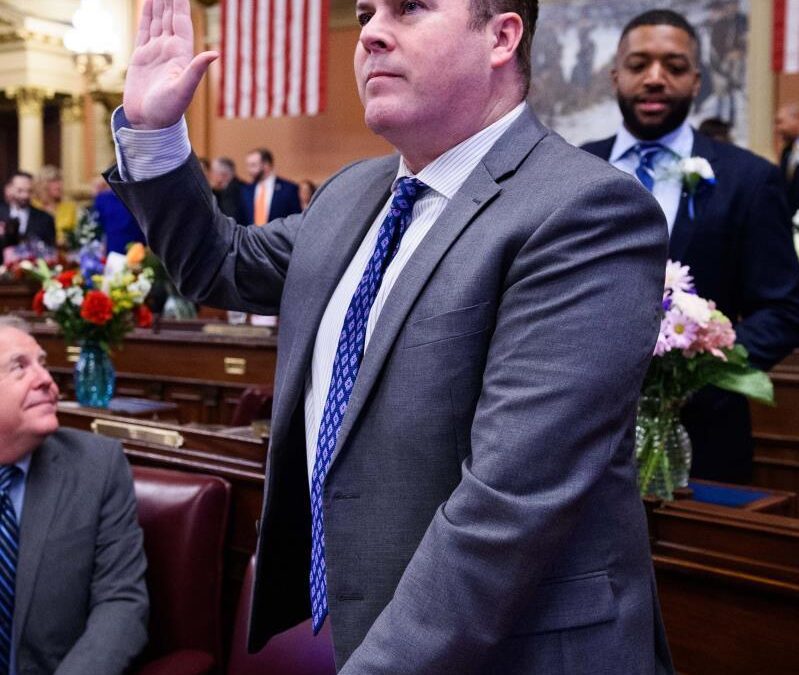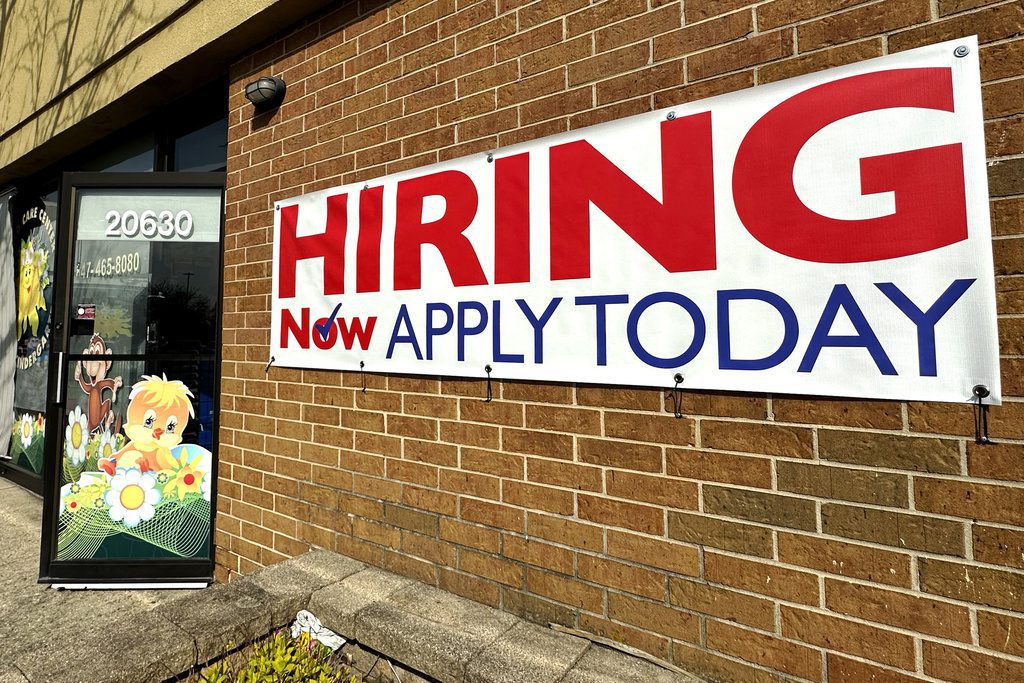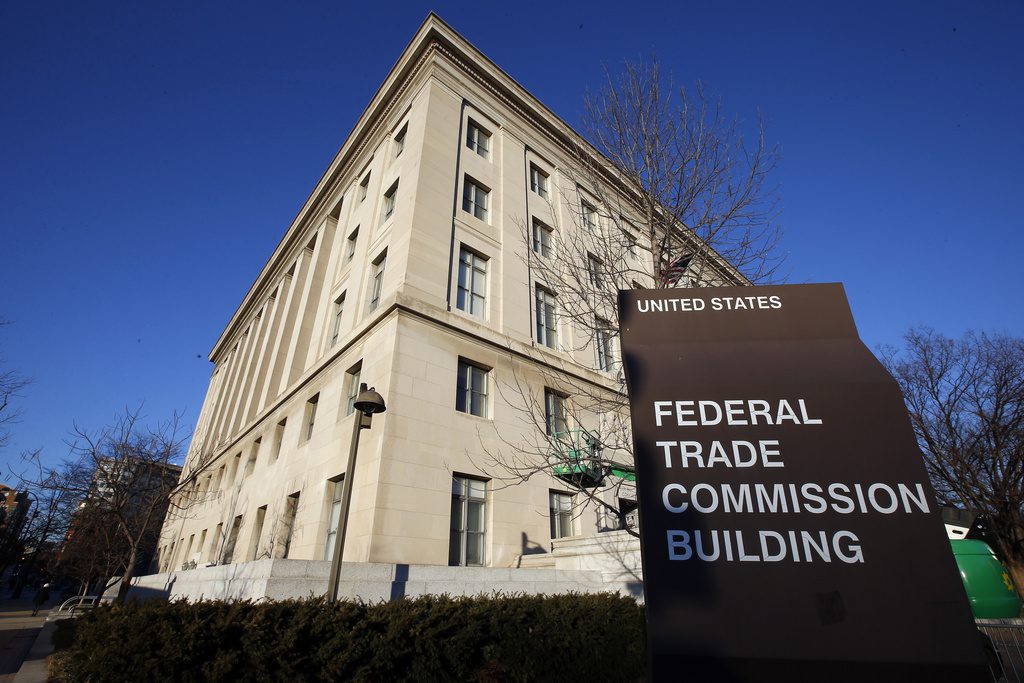
A woman works out on Mt. Washington overlooking the skyline of Pittsburgh that is lit in an Illumination Ovation of thanks and love from Pittsburgh to honor medical, health care and every other kind of essential worker still on the job, Tuesday, April 14, 2020. (AP Photo/Gene J. Puskar)
The bill, which now heads to Gov. Wolf’s desk, would make it so a wider range of businesses is deemed “essential,” including home construction and some small businesses.
Update (April 15, 4:45 p.m.): The Senate voted on Wednesday to advance the bill that will allow more businesses to open under the state’s coronavirus response plan. The vote of 29-21 fell along party lines, with independent Sen. John Yudichak joining Republicans.
“This legislation is not a setback to the health first approach we have in place,” said Sen. Lisa Baker, R-Luzerne County. “It is a hard realization that things have gone too far.”
The Pennsylvania House of Representatives passed legislation on Tuesday to allow some businesses to reopen, going against advice from public health officials and Gov. Tom Wolf’s stay-at-home orders.
One month ago, Wolf ordered more than 100 types of “non-life-sustaining” businesses to close or face legal penalties and fines. More than one million Pennsylvanians applied for unemployment benefits since then. Now the Republican-backed legislation, Senate Bill 613, seeks to reopen select industries. State Democrats are worried about the consequences it could have on the healthcare system.
Republicans are pushing the bill, saying it will follow the federal Cybersecurity and Infrastructure Security Agency guidelines on essential businesses. Under CISA, more businesses would be eligible to be open during the pandemic so long as they follow CDC health standards. The bill would make it so a wider range of businesses is deemed “essential,” including home construction and some small businesses.
RELATED: Pennsylvania and Five Other States Will Work Together to Reopen Regional Economy
Rep. Seth Grove (R-196th District), said the state needs to open up the economy. “Pennsylvania, under Governor’s Wolf’s edict, is the most restrictive state when it comes to businesses being closed,” he said on the House floor Tuesday, according to Local 21 News.
House Majority Leader Bryan Cutler (R-100th District) said the state needs to prepare for the possibility that coronavirus will be a threat for months or even years. “It’s important that we have a vision,” he said. “It’s important to have a plan to get back to work.”
State Democrats disagree, citing the risk of overwhelming the healthcare system with COVID-19 cases. Currently, Pennsylvania has more than 26,000 confirmed cases of the novel coronavirus and 647 virus-related deaths.
“I am here to say no to death,” said state Rep. Margo Davidson (D-164th District). State Rep. Joseph Hohenstein (D-177th District) agreed, stating that the bill “places profits over people.”
The measure passed the House early Tuesday evening, 107-95, along nearly party lines. The bill will now move to the state Senate, where Republican majority leaders are also trying to relax restrictions placed on businesses during the pandemic.
Under the bill, Wolf would be required to develop a coronavirus mitigation plan using the federal recommended guidance. Businesses that comply would be allowed to operate. Wolf has opposed the bill, but has not stated whether he would formally veto it.
Earlier this week, Wolf urged the importance of a more measured approach to reopening the state economy, saying that public health concerns should come first. He announced plans to create a council with six other state governors that will rely on science and data in developing guidelines for how and when the economies can reopen to avoid overwhelming healthcare systems. He and the council say the next phase of the plan will involve making testing available to determine who is actively ill and who is immune to the virus as businesses begin to reopen.
The final stage, Wolf said, entails stockpiling supplies to ensure health care professionals are prepared to handle infectious diseases as “we rebuild our lives and our communities in ways that conform to the new altered normal.”
Politics

Malcolm Kenyatta makes history after winning primary for Pa. Auditor General
State Rep. Malcolm Kenyatta, who was first elected to the state House in 2018, won the Democratic nomination for Pa. Auditor General and will...

Biden administration bans noncompete clauses for workers
The Federal Trade Commission (FTC) voted on Tuesday to ban noncompete agreements—those pesky clauses that employers often force their workers to...

Philadelphia DA cancels arrest warrant for state Rep. Kevin Boyle on eve of Pa. primary
Philadelphia District Attorney Larry Krasner said a detective had sought the warrant against Boyle, a Democrat whose district includes a section of...
Local News

What do you know about Wawa? 7 fun facts about Pennsylvania’s beloved convenience store
Wawa has 60 years of Pennsylvania roots, and today the commonwealth’s largest private company has more than 1,000 locations along the east coast....

Conjoined twins from Berks County die at age 62
Conjoined twins Lori and George Schappell, who pursued separate careers, interests and relationships during lives that defied medical expectations,...




